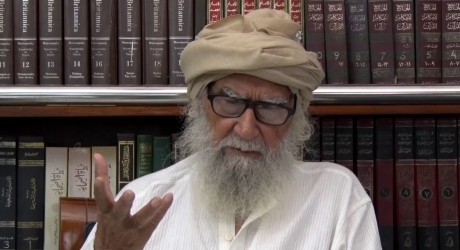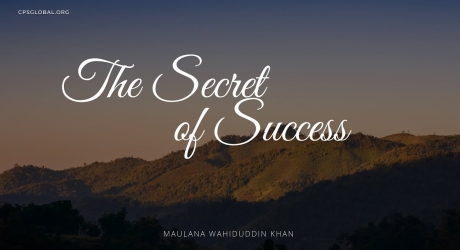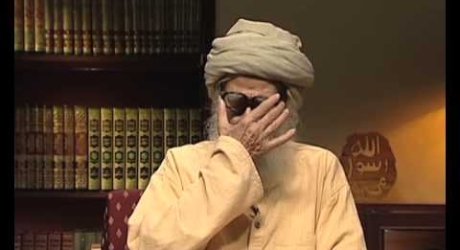The teachings of the Quran are available to us in the form of the copy of the Quran. The Prophet's teachings of the Quran are available to us in the form of the Quran copy. But where is the Prophet's example of wisdom? We will have to understand this in an applied way. The situations of every age undergo change. We will have to discover wisdom in an applied way. Then we will be able to know it. Wisdom is to ignore certain things and utilize opportunities. People are unaware of this.
4,000 years ago, Prophet Ismail built a mosque in Makkah, called the Sacred Mosque. It was meant for the worship of one God. Later people settled down in Makkah and many came from outside. Interaction led to growth of polytheism. Arab leaders used polytheism to their advantage. In Arabia, every tribe had a god. Every tribe worshipped a different god. The Makkan leaders placed all these idols in the Kabah, so that people from all over Arabia could come to pay their respects, hold markets and do religious tourism. This situation helped the Makkan leaders. The Prophet realized there were idols in Prophet Ibrahim's Kabah, but he did not get provoked. There is no example of the Prophet becoming provoked and breaking the idols.
Had the Prophet broken the idols, it would have gone against wisdom. The Prophet saw that due to these idols, there were gatherings at the Kabah. People came to worship the idols and pay obeisance. The Prophet realized that he had access to people from all over Arabia. The Prophet did not travel throughout Arabia. He did not journey to different regions in Arabia. Because people from all over Arabia would come to Makkah, participate in fairs and hold markets here. The Prophet used these people as audience. He ignored the idols and utilized the gathering as audience. This was wisdom. The Prophet ignored the presence of idols in the sacred Kabah. Instead he utilized the gathering at the Kabah as audience. This was Prophet's wisdom and model. The Quran says that the Prophet teaches wisdom. (3:164)
The teachings of the Quran are available to us in the form of the copy of the Quran. The Prophet's teachings of the Quran are available to us in the form of the Quran copy. But where is the Prophet's example of wisdom? We will have to understand this in an applied way. The situations of every age undergo change. We will have to discover wisdom in an applied way. Then we will be able to know it. Wisdom is to ignore certain things and utilize opportunities. People are unaware of this.










